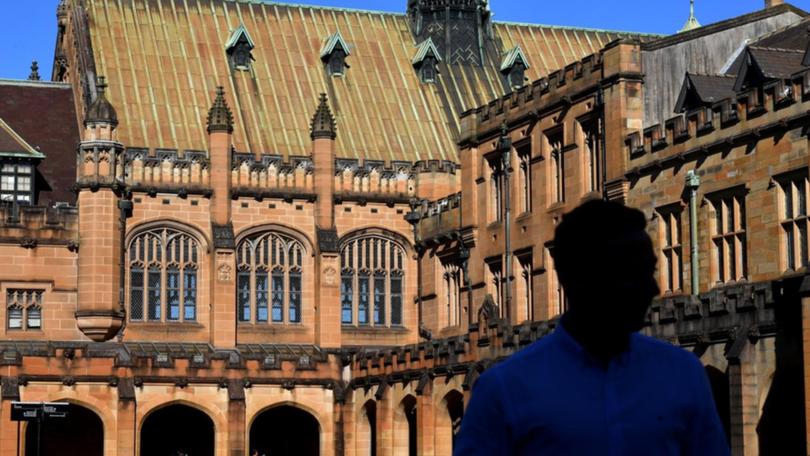Universities fear ‘golden goose’ is about to be cooked as Education Minister Jason Clare seeks to cap overseas student numbers
The universities sector is urging government not to "throw the baby out with the bathwater" by capping lucrative international student visas to Australia.

A cap on the number of international student places at universities and colleges has sparked fears the move could kill the sector’s golden goose, prompting crisis talks between the industry and the government.
Federal Education Minister Jason Clare will be able to set a maximum allocation for new international student enrolments under laws proposed by the government.
The changes will help “strengthen the integrity and quality of international education”, after some education providers were accused of lowering admission standards and using incentives for unscrupulous agents to “poach” foreign students.
Sign up to The Nightly's newsletters.
Get the first look at the digital newspaper, curated daily stories and breaking headlines delivered to your inbox.
By continuing you agree to our Terms and Privacy Policy.“International students are back but so are the shonks seeking to take advantage of them,” Mr Clare said.
“These reforms are designed to ensure the integrity, quality and ongoing sustainability of this vitally important sector.”
The government says a ban on agent commissions on student transfers between providers in Australia will be prohibited, removing those incentives.
It will also tighten controls around ownership and registration of education agents and providers and improve data sharing.
The number of students institutions will be limited to enrolling is still unclear.
The government says the move comes after consulting with the international education sector, but the chief executive of the industry’s peak lobby group argues it will throw out the business plans of universities, language colleges and accommodation providers.
“We’re really asking for clarity ... around what planning levels they’ve got in mind,” International Education Association of Australia chief executive Phil Honeywood told ABC News Breakfast ahead of a meeting with the responsible ministers on Monday.
“We’re worried that we’re going to have policy overreach where too much, too quick is going to really damage Australia’s reputation as a welcoming, safe, world-class study destination.”
Mr Honeywood defended the sector’s reliance on foreign student income, arguing governments have turned a blind eye to adequately funding public universities and left it to universities to come up with the money themselves.
“We can’t throw the baby out with the bathwater,” he said.
“These young people pay three times more in tuition fees than what a domestic student pays, and it’s incredibly important for our relationship with the Indo-Pacific, with our neighbours in South-East Asia, that we’re providing these young people with a world-class education.”
International students provide a $48 billion boost to Australia’s economy and employ 200,000 workers, making it the nation’s fourth largest export.
But they also make up a significant majority of migrant numbers amid a housing shortage and a sharp increase in new arrivals since the relaxation of COVID-19 restrictions.
The overseas student population in Australia reached an all-time high of 671,000 in March, a 15 per cent increase on the previous year.
Crossbench Senator Jacqui Lambie is sceptical that the cap will help alleviate cost-of-living pressures.
“They’re going to have to cut more than what they’re doing with those students.” she told Sky News.
“They are going without houses. They need to do something and more than students.”
